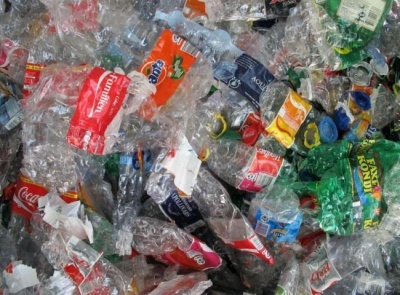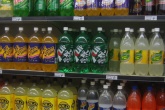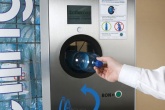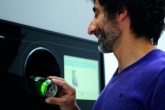Government to introduce deposit return scheme in England this year
A deposit return scheme (DRS) for drinks containers will be introduced in England later this year subject to the results of a consultation, the Department for Environment, Food and Rural Affairs (Defra) confirmed today (28 March).
The UK currently uses around 13 billion single-use plastic bottles a year, three billion of which end up being incinerated, sent to landfill or littered, finding their way into the countryside and the marine environment, while the recycling rate for plastic bottles has plateaued at 57 per cent for the past five years.
Now, following an initial consultation launched by Environment Secretary Michael Gove in October of last year, and with the publication of the resulting Voluntary and Economics Incentives Working Group report on the matter, Defra has confirmed that it will be introducing a DRS for single-use drinks containers made from plastic, glass or metal. This will follow a new consultation on how such a scheme could work, along with other concurrent measures to boost recycling rates.
A DRS sees consumers pay an additional charge on a drinks container, which is then redeemed upon the return of the bottle to a designated location, such as a ‘reverse vending machine’. This system is used in other European countries like Germany and Sweden where the deposit ranges from 8-22 pence and recycling rates for drinks containers is high – the rate is 97 per cent in Germany.
Momentum behind a DRS for plastic bottles in the UK has been building for some time, with Parliament’s Environmental Audit Committee (EAC), which scrutinises the government’s action and policy on environmental matters, recommending the implementation of a DRS for plastic bottles in December upon the release of its report, ‘Plastic bottles: Turning back the plastic tide’. Scottish First Minister Nicola Sturgeon committed the Scottish Government to introducing a DRS across Scotland last September.
Gove, who spoke to Sky News last night and will give a speech at the Natural History Museum later today, said: “We can be in no doubt that plastic is wreaking havoc on our marine environment – killing dolphins, choking turtles and degrading our most precious habitats. It is absolutely vital we act now to tackle this threat and curb the millions of plastic bottles a day that go unrecycled. We have already banned harmful microbeads and cut plastic bag use, and now we want to take action on plastic bottles to help clean up our oceans.”
Read more: Would a DRS be a game-changer or merely cause more problems?
The upcoming consultation will take into account views from producers, suppliers and consumers to ensure that any system introduced works across the country. Defra has said that it is also seeking discussions with the devolved administrations over working together on the issue.
While the announcement has initially been well-received, concerns remain that a DRS will divert recyclable material away from the kerbside recycling collection system, potentially undermining a key revenue stream for local authorities.
Public backs deposits
The national media has also sought to exert its considerable influence on government to bring about the introduction of a DRS, with Sky and the Daily Mail in particular declaring victory in their campaigns to implement the system today.
The report goes on to say that a DRS has the potential to increase recycling rates to more than 80 per cent for both plastic bottles and aluminium cans, and that the overall value of deposits in the scheme could be over £1 billion between the two materials.
Commenting on the findings, David Palmer-Jones, Chief Executive Officer for SUEZ, said: “Almost three quarters (74 per cent) of those polled have said they would take plastic bottles and aluminium cans to a recycling and redeem point if they carried a 10p refundable deposit.
“We believe bringing manufacturers and consumers together under a deposit return scheme will help the nation recycle more bottles and cans, at the same time as reducing litter and improving the cleanliness and quality of materials returned to manufacturers.
“We can see from the YouGov poll that people struggle to recycle on the go and fewer than half of us are likely to hang on to bottles or cans long enough to recycle when we get home – instead opting to throw them in a public rubbish bin, or worse.
“At SUEZ we calculate that the billions of plastic bottles and aluminium cans purchased on the go each year would raise more than a billion pounds annually through deposits. Of this figure, up to around three hundred million pounds would go unredeemed and instead could help meet the costs of funding the collection system and improving our wider environment.
“SUEZ has long been a champion of deposit return schemes, but they are not a panacea to Britain’s long-term sustainability challenges, and should only be just part of a much wider producer-responsibility regime to incentivise the most sustainable choices for both consumers and manufacturers, which will in turn protect our natural capital.”
Plastic scourge
The consultation on a DRS will follow the consultation launched by Chancellor Philip Hammond earlier this month on how the tax system can be used to reduce the consumption of single-use plastics, in order to ensure that relevant findings can be fed into the proposals.
Today’s announcement shows that the government is maintaining plastic waste at the heart of its environmental policy, an issue that has shot up the public agenda, with some 8-12 million tonnes of plastic waste entering our oceans every year. Prime Minister Theresa May committed the UK to eliminating ‘avoidable’ plastic waste by 2042 in what was the headline ambition in the government’s long-awaited 25 Year Environment Plan, released in January,
Michael Gove has displayed particular zeal in the fight against plastics, implementing a ban on wash-off microbeads in cosmetic and personal care products from the start of the year, and calling for a cross-sector plan to tackle the challenges of plastic packaging more widely, with the Waste and Resources Action Programme (WRAP) and the Industry Council for Research on Packaging and the Environment (INCPEN) asked to take the lead.











